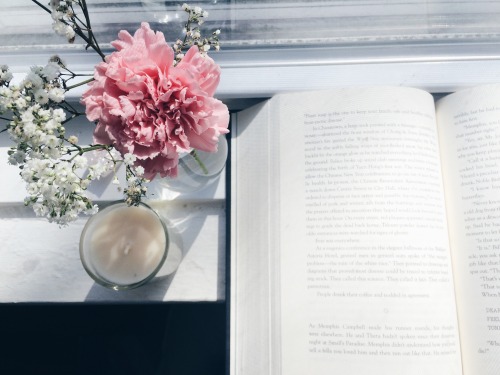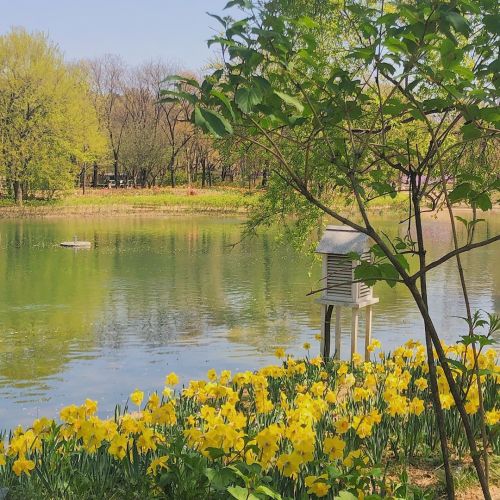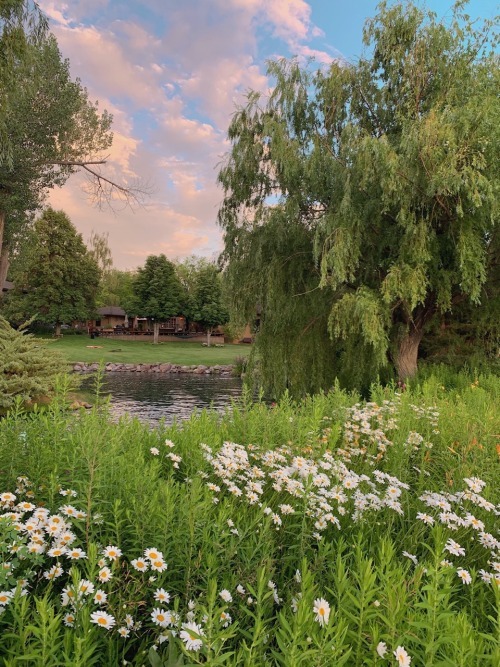Theblogofwildfellhall

More Posts from Theblogofwildfellhall and Others


German is not that difficult as we think. Learning a new language is always a struggle in the beginning but with practice, it starts to become natural as our native language. In this post, I’ll give you some tips to start learning or improve your German.
Phonetics: start with learning the vowels and consonants. The vowels and consonants sound way different in German. Learn how to read the words, especially the ones with the umlaut: ä, ö and ü. They have an especial pronunciation and, if you want to be understood, learn them. For example, schon means already while one of the meanings of schön is beautiful.
Basic words and expressions: ja, nein, danke, bitte, auf Wiedersehen, ich, du and etc. This is a good start and they are very useful words. Move on to basics like ich bin, ich heisse…
Vocabulary: I would this is the most important thing in learning a new language. There’s no point knowing every grammar rule if you have nothing to say. Read texts and write every word that you don’t know. If it’s a substantive, also look for the articles (der, die or das) and the plural. You can use flashcards to help to memorize those words.
German cases: this is what people are afraid about learning German. I’m not gonna lie because this shit scared me as hell. Stop seeing it as a bad thing, because it’s not. First of all, you need to know the gender of the words so you can actually use them. If you don’t know the articles, you are going to use the cases wrong. Second, we use wich case after certain verbs and prepositions, so you also need to know how to use that stuff. Maybe soon I’m going to do a post explaining the four cases…
Listen: get used to the language. Music, tv shows, movies, podcasts, everything is very useful in this process. You might catch yourself while you are studying: hey, I remember this word from that song.
Don’t give up: stop thinking that you won’t learn German, because you will! Push yourself and study, because no one else will do that for you. It always seems impossible until it’s done. I’m here with you!
Classic Horror Novels That Are NOT Frankenstein Or Dracula
The Vampyre by John William Polidori
Carmilla by J. Sharidon le Fanu
The Flowers Of Evil by Charles Baudelaire
Perfume: The Story Of A Murderer by Patrick Suskind & translated by John E. Woods
The Strange Case Of Doctor Jekyll & Mister Hyde by John Louis Stevenson
Complete Stories & Poems by Edgar Allen Poe
The Picture Of Dorian Grey by Oscar Wild
The Turn Of The Screw by Henry James
The Island Of Doctor Moreau by H.G. Wells
The Hounds Of Baskerville by Sir Arthur Conan Doyle
The Monk by Matthew Gregory Lewis
Jane Eyre by Charlotte Bronte
The Legend Of Sleepy Hollow by Washington Irving
Uncle Silas by J. Sheridan le Fanu
Melmoth The Wanderer by Charles Robert Maturin
The Woman In White by Wilkie Collins
*Note these are all novels published BEFORE the 1900s -- I've got a whole other list of those. If you're interested, hmu.


beautiful french words ✿
ange – angel (masc.)
baleine – whale (fem.)
bisou – kiss (masc.)
brindille – twig (fem.)
brûler – to burn
brume – mist (fem.)
câlin – hug (masc.)
chaleur – heat (fem.)
chatoyer – to shimmer
chaussettes – socks (fem.)
chouchou – my little cabbage, said as a term of endearment (masc.)
citronnade – lemonade (fem.)
citrouille – pumpkin (fem.)
coquillage – seashell (masc.)
croquis – sketch (masc.)
dépaysement – the feeling of being in another country, the weird feeling you get from things being different from what you’re used to. (masc.)
doux – soft
écarlate – scarlet
éclatant – brilliant, dazzling, gleaming
effleurer – to touch or brush against
empêchement – something that keeps you from doing something (masc.)
épanoui – blooming, joyful, radiant
éphémère – ephemeral
étoile – star (fem.)
feuilles – leaves (fem.)
flâner – to stroll aimlessly
floraison – bloom (fem.)
grelotter – to shiver
hirondelle – swallow (bird) (fem.)
libellule – dragonfly (fem.)
loufoque – wild, crazy, far-fetched
luciole – firefly (fem.)
myrtille – blueberry (fem.)
noix de coco – coconut (fem.)
nuage – cloud (masc.)
orage – thunderstorm (masc.)
pamplemousse – grapefruit (masc.)
papillon – butterfly (masc.)
parapluie – umbrella (fem.)
pastèque – watermelon (fem.)
piscine – swimming pool (fem.)
plaisir – pleasure (masc.)
pleuvoir – to rain
plonger – to dive
retrouvailles – the feelings of seeing someone again after a long time (fem.)
sirène – mermaid (fem.)
soleil – sun (masc.)
sortable – someone you can take anywhere without being embarrassed
tournesol – sunflower (masc.)
french linking words 🌿
Ainsi – Thus, In This/That Manner
La fée transforma ses jambes en queue de poisson, et ainsi, la princesse devint une sirène. The fairy transformed her legs into a fish tale, and thus, the princess became a mermaid.
C’est Ainsi Que – It’s This Way
Elle a travaillé dur pendant dix ans. C’est ainsi qu’elle a gagné la compétition. She worked hard for 10 years. She won the competition that way.
Alors – Then, So, Hence
Jean Noël ne pouvait pas supporter le bruit dans le club, alors il est sorti. JN couldn’t bear the noise in the club, so he went out.
Alors Que – While, Whereas, When
Alors que Sophie aime le jazz, Marie déteste ça. Whereas Sophie loves jazz, Mary hates it.
Aussitôt Que –As Soon As
Aussitôt que la chatte s’est endormie, les souris se sont montrées.
As soon as the cat fell asleep, the mice showed themselves.
D’autant Plus – All The More
Il partageait sa passion de la danse. Elle l’aimait d’autant plus. He shared her passion for dance. She loved him all the more.
D’autant Plus Que – Even More So Since
Je suis vraiment déçue. D’autant plus que je lui avais dit de venir chez nous. I am really disappointed. Even more so since I told him to come to our house.
Bien Que – Even Though (*Followed By The Subjunctive)
Elle l’a fait, bien qu’elle n’en ait pas eu envie. she did it even though she didn’t feel like it.
Si Bien Que – Hence
Ils parlaient à demi-voix si bien qu’elle ne pouvait pas les entendre. They spoke softly, hence she couldn’t hear them.
Cependant – Nevertheless, Meanwhile, However
Je ne suis pas de son avis. Cependant je le suivrai. I don’t share his opinion. Nevertheless I will follow it.
Dès – Since, From
Dès ce moment, il a refusé de parler d’elle. From that moment, he refused to talk about her.
Dès Que – As Soon As
Je te téléphonerai dès qu’elle arrivera. I’ll call you as soon as she gets here.
En Tant Que – As (A)
En tant qu’ingénieur, elle est très précise. As an Engineer, she is very precise.
Lorsque – When
Ils ont cueilli les cerises lorsqu’elles étaient mûres. They picked the cherries when they were ripe.
Malgré – Despite
Malgré son effort, cela n’a pas suffi. Despite her efforts, it wasn’t enough.
Même Si – Even If
Il ira même si elle n’y va pas. He’ll go even if she doesn’t.
À Moins Que – Unless (*Followed By The Subjunctive)
Vous ne pourrez pas voir la directrice à moins que vous ayez un rendez-vous. You will not be able to see the director unless you have an appointment.
Néanmoins – However, Nevertheless, Nonetheless
Elle avait peu d’argent néanmoins elle lui a tout donné. She had little money, but she gave all to him nonetheless.
Pendant Que – While, As
Marc étudie la chimie pendant qu’il écoute la radio. Marc studies chemistry while he is listening to the radio.
Pour Que – So That (*Followed By The Subjunctive)
Il a couru pour qu’elle ne l’attende pas trop longtemps. He ran so that she wouldn’t wait for him too long.
Pourtant – Although, Still, Nevertheless
La femme a plus de quarante ans, mais c’est pourtant une beauté. The woman is over forty, but she is nevertheless a beauty.
Puisque – Since, Because, As, Seeing That, For That Reason
Puisque sa maman ne voulait pas jouer au Monopoly, le petit garçon est sorti jouer dehors. Since his mother didn’t want to play Monopoly, the boy went to play outside.
Quand Même – Even Though, All The Same, Nevertheless
Ce n’est pas lui qui chantait le mieux, mais il a gagné la compétition quand même. He wasn’t the best singer, but he won the contest all the same.
Quant À – As For
Quant à lui, il préfère ne pas discuter de ce sujet dangereux. As for him, he’d rather not talk about this dangerous topic.
Quoique – Though, Although (*Followed By The Subjunctive)
Quoiqu’elle ne sourie pas beaucoup, en réalité elle est très contente. Although she doesn’t smile much, in fact she is really happy.
Quoi Que – Whatever, No Matter What (*Followed By The Subjunctive)
Quoi qu’il dise, elle ne le croit pas. Whatever he might say, she won’t believe him.
Sinon – Except, If Not, Otherwise, Except That, Unless
Ne sors pas sans manteau, sinon tu vas attrapper froid. Don’t go out without a jacket, otherwise you’ll catch a cold.
Tandis Que – Whereas, While
Il préfère aller à la plage pour les vacances, tandis qu’elle préfère aller à la montagne. He likes to go to the beach for vacations, whereas she prefers the mountains.
LINDSEY STIRLING TIME
things to do when you’re bored:
filling a notebook with random conversation phrases overheard from strangers
writing 100 poems in one week (inspired by @alwaysbringabookwithyou)
creating moodboards for your friends
learning lyrics in a foreign language
reading challenges of any kind
creating playlists for different moods, seasons, times of the day
turning an unused notebook into an art journal
writing short stories on words from a random dictionary page
learning everything about a certain year or historical period
listing 100 places you want to visit
imagining the best version of yourself and jot down first steps to become them
trying and rating new skincare/beauty products
-
 reddinah reblogged this · 6 months ago
reddinah reblogged this · 6 months ago -
 ladytea403 liked this · 7 months ago
ladytea403 liked this · 7 months ago -
 zwillinge65 liked this · 8 months ago
zwillinge65 liked this · 8 months ago -
 koripants reblogged this · 8 months ago
koripants reblogged this · 8 months ago -
 sififantsyfangirl reblogged this · 8 months ago
sififantsyfangirl reblogged this · 8 months ago -
 sififantsyfangirl liked this · 8 months ago
sififantsyfangirl liked this · 8 months ago -
 jollychristmasjoy reblogged this · 8 months ago
jollychristmasjoy reblogged this · 8 months ago -
 cupcakegoddess liked this · 9 months ago
cupcakegoddess liked this · 9 months ago -
 candycaane reblogged this · 9 months ago
candycaane reblogged this · 9 months ago -
 allwillbecomeclear liked this · 2 years ago
allwillbecomeclear liked this · 2 years ago -
 cwtchseason reblogged this · 2 years ago
cwtchseason reblogged this · 2 years ago -
 world-of-joy reblogged this · 2 years ago
world-of-joy reblogged this · 2 years ago -
 terribleprincess reblogged this · 3 years ago
terribleprincess reblogged this · 3 years ago -
 vocenelsilenzio liked this · 3 years ago
vocenelsilenzio liked this · 3 years ago -
 engel1973 liked this · 3 years ago
engel1973 liked this · 3 years ago -
 stanjames-world-3 liked this · 3 years ago
stanjames-world-3 liked this · 3 years ago -
 petitefee1974 liked this · 3 years ago
petitefee1974 liked this · 3 years ago -
 spetzerfehn liked this · 3 years ago
spetzerfehn liked this · 3 years ago -
 enjoythesilence771711 liked this · 3 years ago
enjoythesilence771711 liked this · 3 years ago -
 jdbest liked this · 3 years ago
jdbest liked this · 3 years ago -
 ladiesfirstalways liked this · 3 years ago
ladiesfirstalways liked this · 3 years ago -
 l-undessens-l liked this · 3 years ago
l-undessens-l liked this · 3 years ago -
 sven77600 liked this · 3 years ago
sven77600 liked this · 3 years ago -
 orchideafarfalla liked this · 3 years ago
orchideafarfalla liked this · 3 years ago -
 koraline-k liked this · 3 years ago
koraline-k liked this · 3 years ago -
 fun-and-fancy-free liked this · 3 years ago
fun-and-fancy-free liked this · 3 years ago -
 morphinedoutretombe liked this · 3 years ago
morphinedoutretombe liked this · 3 years ago -
 rarest-beauty reblogged this · 3 years ago
rarest-beauty reblogged this · 3 years ago -
 greigferguson liked this · 3 years ago
greigferguson liked this · 3 years ago -
 sub-91 reblogged this · 3 years ago
sub-91 reblogged this · 3 years ago -
 liapetraki liked this · 3 years ago
liapetraki liked this · 3 years ago -
 hilyana liked this · 3 years ago
hilyana liked this · 3 years ago -
 irecallthepushmorethanthefall reblogged this · 3 years ago
irecallthepushmorethanthefall reblogged this · 3 years ago -
 whitewalker13 liked this · 3 years ago
whitewalker13 liked this · 3 years ago -
 kaire liked this · 3 years ago
kaire liked this · 3 years ago
Emma. 27. A blog for Classic Literature, language learning, flowers, and aesthetic
117 posts




